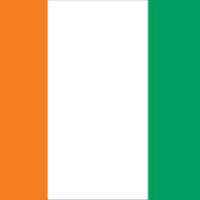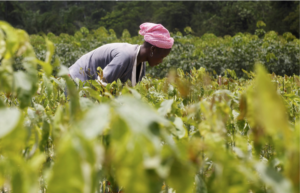Labor and employment are two areas of considerable importance to the economic structure of Côte d’Ivoire, especially in the agricultural, mining, and manufacturing industries (Iloh et al., 2021). The textile and apparel industry, on average, is still growing but is the major employment sector of the population (Séraphin & Cyrille, 2022). This covers cotton farming, a labor-intensive crop that employs a good number of rural Ivorians, and garment manufacturing, mostly located in urban areas.
Concerning the regional labor market, Côte d’Ivoire relies on the immigration of its workforce from other countries, such as Burkina Faso and Mali, and particularly in the farming sector (Kouakou, 2020). This results in labor interdependence within the region since these migrant workers are useful in the running of agricultural and textile industries (Mahamadou, 2021). But it is also important to look at challenges peculiar to the Côte d’Ivoire labor market, such as job competition with low-wage Asian countries streaming in the apparel sector (Oyebamiji, 2024). This means therefore that Côte d’Ivoire must do away with some factors that currently limit its exportation of textiles and apparel in the global markets, these being high labor costs and restrictions when it comes to access to better technology in terms of textile manufacturing machinery.




